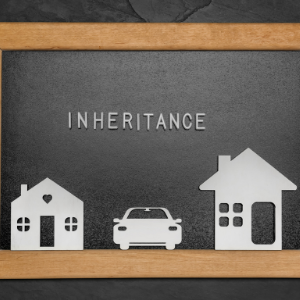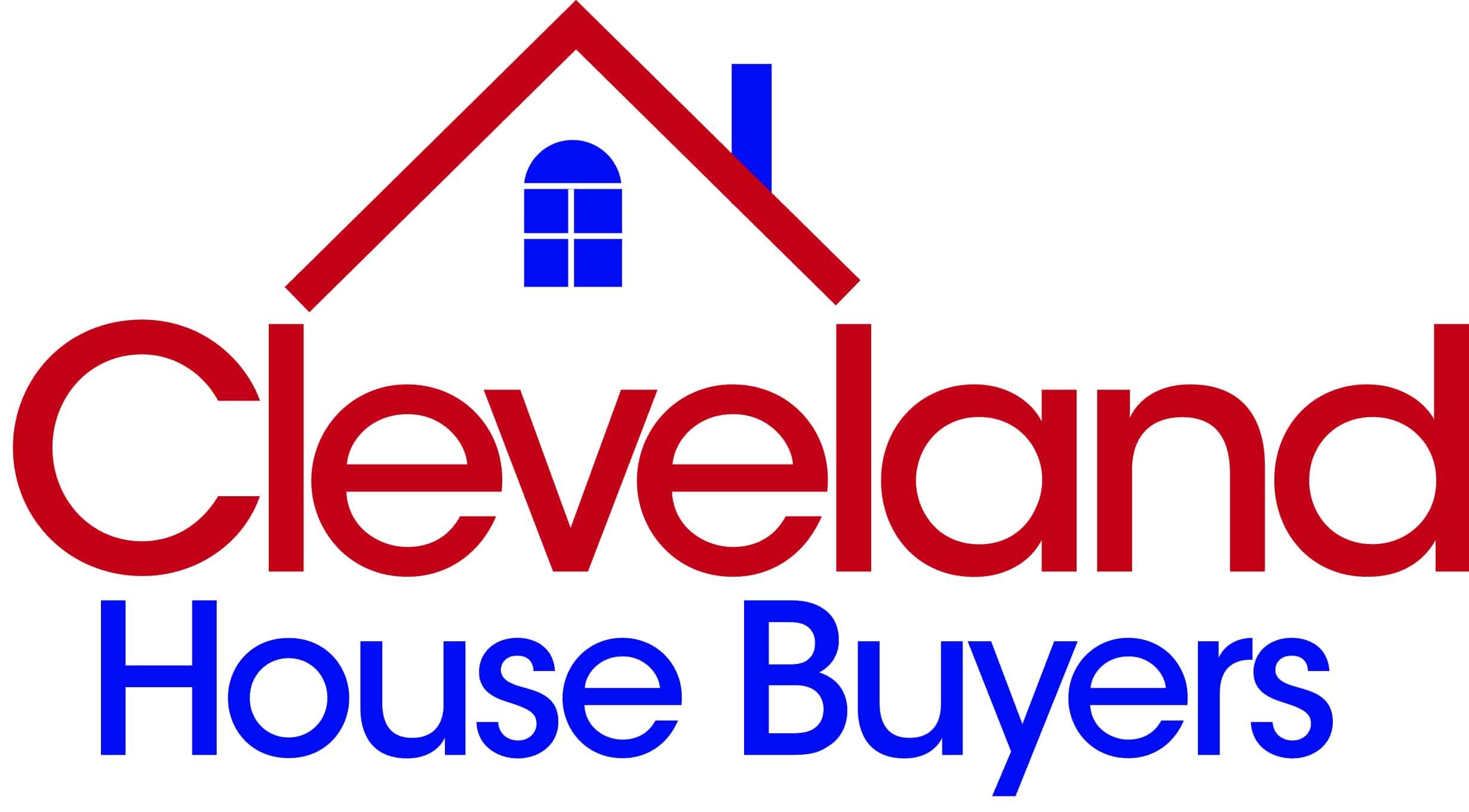
Understanding Reverse Mortgages: A Comprehensive Guide
Reverse mortgages are a unique financial tool offered to Cleveland homeowners, particularly those aged 62 and up, who want to leverage their home’s worth. Understanding how reverse mortgages work is critical for anyone contemplating this option while selling their property.
A reverse mortgage differs from regular mortgages in that the lender pays the homeowner rather than the borrower. This arrangement enables elders to access home equity without selling or abandoning their houses.
The loan balance grows over time as interest accumulates, but repayment is not due until the homeowner sells the property, moves out permanently, or dies. Cleveland homeowners must understand the interest rates, loan limitations, and costs of reverse mortgages to make informed selections.
Furthermore, negotiating these loans necessitates comprehending federal regulations and safeguards to protect homeowners’ interests. Those wanting to sell their property using a reverse mortgage approach in Cleveland’s real estate market must carefully consider how this financial product fits current market conditions and personal financial objectives.
If you’re navigating this process and need to sell your Cleveland house fast—whether you have a reverse mortgage or not—Cleveland House Buyers can step in with a cash offer, helping you avoid the drawn-out listing process and skip costly repairs. They also work with homeowners in nearby areas like Parma, Lakewood, Euclid, and Akron, making it easy to sell your Parma house fast or get a fair cash offer if you want to buy home for cash in Lakewood.
Key Benefits of Reverse Mortgages for Homeowners

Reverse mortgages present a compelling set of benefits for Cleveland residents contemplating selling their houses in the future. Foremost among these is the heightened financial flexibility they afford, permitting homeowners to convert a portion of their home equity into immediately available cash without the pressure of a prompt sale.
This structure is particularly advantageous to those supplementing fixed retirement income or settling lingering liabilities while occupying the same residence. Moreover, the absence of monthly repayment obligations alleviates a notable financial strain; repayment is deferred until the home is sold or the property ceases to serve as the borrower’s primary domicile.
In the face of a fluctuating Cleveland housing market, reverse mortgages confer additional security through a no-negative-equity guarantee: borrowers will never owe more than the net proceeds of the home’s sale. This feature is especially reassuring to older homeowners intent on aging in place, as it permits stable cash flow without compelling a hastened exit from an unpredictable market.
Financial Implications of Reverse Mortgages Explained
If you contemplate selling your Cleveland residence encumbered by a reverse mortgage, you must first grasp the fiscal consequences. Reverse mortgages allow qualifying homeowners—typically seniors—to convert a segment of their home equity into liquid assets, postponing repayment until the dwelling is sold, the borrower passes away, or a specified maturity condition arises.
Consequently, when you market the home, the cumulative loan balance and the accumulated interest must be liquidated from the sale proceeds. The lender retains the statutory right of repayment, meaning that the net equity earned only after discharging the reverse mortgage will be your only yield.
Market dynamics, such as prevailing prices and absorption rates in Cleveland’s neighborhoods, will further dictate the magnitude of that net profit. To mitigate unforeseen tax liabilities and ancillary costs that may accompany the transaction, you should retain a realtor seasoned in reverse mortgage dispositions and consult tax and estate planning specialists. Acquainting yourself with these variables is imperative for navigating the transaction with a fully informed mindset.
Navigating the Process of Selling a Home with a Reverse Mortgage
Selling a home encumbered by a reverse mortgage in Cleveland may pose some unique challenges, yet a clear grasp of the pertinent procedures can smooth the process considerably. The foremost consideration is the necessity of liquidating the reverse mortgage balance, which becomes due upon the sale. Begin this step by contacting the originating lender to request a payoff statement; this will provide the exact figure required to extinguish the loan and free the property of the encumbrance.
Next, gauge the prevailing Cleveland real estate market. Variability in property values and buyer appetite can dictate your pricing and marketing approach. Partnering with a seasoned real estate professional with demonstrable experience in reverse mortgage transactions and localized market trends is invaluable. Such an agent can perform a comparative market analysis to determine an appropriate listing price and design a targeted marketing plan to attract qualified buyers.
Sellers must also investigate any subordinate liens or obligations associated with the property; these encumbrances must be satisfied before the closing to ensure a clear title. Transparent communication among all stakeholders—lenders, agents, title companies, and prospective purchasers—is imperative to avert misunderstandings that could derail the sale.
By systematically addressing these logistical, market, and contractual elements, you may confidently execute the transaction while strictly complying with all reverse mortgage regulations.
Common Challenges in Selling Homes with Reverse Mortgages
Selling a Cleveland reverse mortgage house requires forethought and research. Since interest and fees remain during the reverse mortgage period, the debt might grow faster than the market appreciates, eroding the owner’s equity and affecting the sale price and net proceeds.
To select a reasonable yet competitive selling price, homeowners must compare the loan balance to comparable market prices. The lender’s terms are also important: reverse mortgage servicers typically require that the loan be satisfied at closing, meaning the sale proceeds must pay down the debt. This requires early coordination with settlement agents to balance cash and sale statistics before listing.
Sellers must also address buyer concerns. Many buyers misunderstand reverse mortgages and encumbered titles. Transparency, disclosures, and lender documentation reduce skepticism. Lastly, Cleveland market volatility might complicate the approach by lowering profit margins and increasing the requirement to list faster to avoid additional depreciation.
Agents who know reverse mortgage laws, funding chains, and area absorption rates are essential. They can handle incremental talks and achieve a timely, lender- and regulator-compliant resolution.
Legal Considerations When Selling a Home with a Reverse Mortgage

Selling a Cleveland home secured by a reverse mortgage necessitates careful attention to its legal requirements. Homeowners must first confirm that all conditions of the reverse mortgage are satisfied, notably the loan’s stipulation that the full outstanding balance must be repaid when the property is transferred.
Engaging a real estate attorney who is conversant with Ohio statutes and federal regulations can help navigate these stipulations and ensure that all procedures align with governing legal frameworks. Sellers must also determine whether the reverse mortgage contains prepayment penalties or other charges associated with paying the loan balance before the scheduled maturity.
Transparent disclosure of all relevant terms to prospective buyers is essential to mitigate the risk of future litigation. In addition, the homeowner should assess the implications of the sale for estate planning, since the sale of the property can alter both inheritance succession and potential tax liabilities.
A comprehensive grasp of these legal dimensions will reduce the likelihood of unexpected complications and facilitate streamlined transactions in the Cleveland real estate market.
Essential Documents Needed When Selling a Home with a Reverse Mortgage
Acquiring all necessary documentation is critical to a successful transaction when selling a house in Cleveland with a reverse mortgage. Begin by locating your reverse mortgage agreement, which details your property’s loan terms and conditions.
This document is critical for comprehending any duties or penalties incurred throughout the sale process. Additionally, acquire a payoff statement from your lender, showing the outstanding balance required to settle the reverse mortgage.
A clear title is also necessary, so be sure your title insurance coverage is current and free of any liens or encumbrances that may hinder the transaction. Having recent property tax statements on hand will help verify that no overdue taxes are owed on the property.
You must also supply recent appraisals or valuations to determine your home’s current market value accurately. Additionally, all relevant homeowner association agreements must be obtained, which can influence potential buyers’ decisions and must be revealed during negotiations.
Organizing these crucial documents will help speed the selling process and avoid delays or issues when acquiring property in Cleveland’s real estate market.
The Impact of Market Conditions on Selling Homes with Reverse Mortgages
Market circumstances are critical when selling properties with reverse mortgages in the Cleveland real estate market. When the property market is healthy, home values tend to grow, which benefits homeowners wanting to sell their properties utilizing reverse mortgages.
A strong market can enhance the equity available in a home, potentially resulting in a more profitable sale and sufficient proceeds to cover the loan sum. During a downturn or when the market is stagnant, property values may fall, making it difficult for sellers to obtain positive results.
In such cases, the proceeds from the sale may be insufficient to satisfy the reverse mortgage obligations fully. Understanding local real estate trends is critical for homeowners contemplating this option.
Interest rates, buyer demand, and area economic health can all affect how quickly and profitably a home can be sold. Engaging with real estate specialists in Cleveland with experience managing these dynamics is critical for optimizing financial benefits while minimizing potential dangers connected with changing market conditions.
How to Effectively Market Homes with Reverse Mortgages for Sale
When selling a house with a reverse mortgage in Cleveland, it’s critical to emphasize the unique benefits to potential buyers while addressing typical concerns. Begin by stressing the home’s location, particularly the neighboring amenities, schools, and transportation alternatives that make Cleveland enticing.
Showcase any recent repairs or upgrades that increase the property’s value, prominently showing them in listings and promotional materials. Use professional photographs and virtual tours to give a fully immersive experience for faraway buyers.
It is critical to communicate the intricacies of the reverse mortgage situation fully; transparency about terms can help prospective purchasers create trust. Collaborate with real estate agents with experience dealing with reverse mortgage-encumbered properties, as they can provide valuable insights into pricing and buyer negotiations.
Highlighting energy-efficient features or distinctive architectural characteristics can entice buyers who are environmentally concerned or design-oriented. Use social media channels and online real estate marketplaces to reach a larger audience, tailoring your marketing plan to demographics most likely to buy properties in this market sector.
Tax Considerations When Dealing with Reverse Mortgages and Property Sales

When selling a Cleveland house with an existing reverse mortgage, it is critical to understand the potential tax ramifications. Reverse mortgages are unique financial products that might affect taxable income when the property is sold.
Homeowners should be aware that, while revenues from the sale of a principal house are sometimes excluded from capital gains tax up to specified restrictions, the outstanding balance of a reverse mortgage must be settled upon purchase, potentially affecting net profits. Furthermore, using a portion of your house for business reasons, such as a home office, may complicate your tax situation by affecting capital gains exemptions.
Understanding how depreciation recapture works is critical since it might boost taxable income. Consulting with a knowledgeable tax expert familiar with real estate transactions and reverse mortgages in Ohio’s real estate market can provide clarity and help you avoid unexpected tax liabilities when selling your property.
Post-Sale Steps: What Comes After Selling Your Home with a Reverse Mortgage
After selling your Cleveland home with a reverse mortgage, you must handle the consequences cautiously. The priority is using the sale profits to repay the reverse mortgage. This removes any property title liens and clears the proceeds ownership. At this point, working with your reverse mortgage lender to meet contractual and regulatory requirements ensures the transaction follows legal guidelines.
After paying the reverse mortgage, visit a financial advisor or real estate professional to determine how to use the net proceeds. Alternatives include buying a new home, putting liquid assets toward retirement savings, or diversifying investments according to your financial strategy. Due to the long-term ramifications of each option, professional advice is recommended to match decisions to risk tolerance and liquidity needs.
Additionally, carefully archive and submit the sale contract, payback statement, and final deed of reconveyance with the county offices. Keeping these data orderly simplifies financial reporting and strengthens your legal position if inconsistencies develop. By mastering these post-sale measures, you can effectively navigate Cleveland’s changing real estate market and protect your finances.
Cleveland, OH Real Estate Market Trends and Insights
The real estate market in Cleveland, Ohio, presents distinct opportunities and hurdles for homeowners selling residences encumbered by a reverse mortgage. Over the past several years, the city’s property values have exhibited cyclical movement, shaped by broader economic trends, variable housing demand, and localized neighborhood revitalization initiatives.
Prospective sellers must therefore keep a vigilant eye on prevailing market indicators. The market is characterized by renewed buyer interest in resurgent urban districts and neighboring suburban enclaves, suggesting a widening competitive pool.
Nonetheless, fluctuations in interest rates, alongside prevailing inventory levels, exert significant, and often variable, pressure on home prices. Homeowners must strictly calibrate pricing and marketing strategies to comply with reverse mortgage servicing regulations.
Engaging seasoned real estate professionals familiar with the Cleveland landscape—particularly its evolving lending and housing dimensions—will enable sellers to navigate these complexities and enhance the likelihood of a successful transaction.
How Do You Sell Your House When You Have a Reverse Mortgage?
Selling a Cleveland house with a reverse mortgage requires a few measures to go smoothly. The reverse mortgage balance must be paid before selling the property.
Reverse mortgage-savvy real estate agents should be your first call. A payback statement from your lender will show what you owe. That amount is needed to price your Cleveland house competitively.
Get a new appraisal and payoff statement. The assessment will determine the home’s market value, influencing your listing price. Once you find a buyer, the selling proceeds will pay off the reverse mortgage, including interest and fees.
The extra equity from selling your house for more than your reverse mortgage sum is yours without strings. Since reverse mortgages are non-recourse, you or your heirs won’t be liable for any difference between the sale price and the debt. Understanding these details and Cleveland’s real estate climate will help you create a deal that maximizes financial upside and minimizes hassle.
What Is the Biggest Problem with a Reverse Mortgage?
When you think about selling your Cleveland home, the biggest worry tied to a reverse mortgage is the risk of equity erosion. Although the loan lets you convert some home equity into cash you can use immediately, each withdrawal chips away at the total value you still have. Interest continues to compound, and because you aren’t making regular payments, the balance just gets higher. When you’re ready to sell, the amount you owe could be close enough to the sale price that the profit is modest or non-existent.
Suppose, for a moment, that home prices in Cleveland stop climbing or drop instead. In that case, selling a house becomes trickier: there might not be enough money left after settling the reverse mortgage balance.
Homeowners getting ready to sell should take a deep breath, double-check the numbers, and possibly bring in a real estate expert. A bright look at how the reverse mortgage fits into the picture can save money and many future headaches.
How Long Do You Have to Sell a Home with a Reverse Mortgage?
Pay special attention to the calendar if you’re negotiating the sale of a Cleveland home with a reverse mortgage. The loan becomes due every time the borrower passes away or permanently leaves the house.
Usually, the heirs have a six-month window to sell the property and pay off the loan. If the timeline feels tight, lenders can offer two 90-day extensions.
To avoid surprises, the family should contact the lender right away to get a firm confirmation of the deadlines and the specific steps to keep the sale on track. Knowing these timeframes will empower you to move successfully through Cleveland’s market while following reverse mortgage requirements.
What Is the 95 Rule on a Reverse Mortgage?
Another key topic for anyone selling a Cleveland home with a reverse mortgage is the 95 percent rule. Under this guideline, the sale price must be at least 95 percent of the most recent appraisal when you list the house. Meeting this threshold is necessary to pay off the reverse mortgage and close the transaction without complications.
This rule is designed to protect everyone in the transaction—relative to reverse mortgages—by ensuring that the proceeds from the eventual sale are sufficient to cover whatever balance the borrower still owes. If the home sells for a value lower than that balance, the lender may ask the borrower to make up the shortfall with an additional payment.
Cleveland homeowners must grasp this rule thoroughly when planning to sell a house burdened by a reverse mortgage. Its requirements will influence how they price the property and negotiate with prospective buyers. A clear sense of the law and a read on present market dynamics will enable sellers to shape wiser offers and sidestep pitfalls that could derail the closing.
Whether you’re selling a house with a reverse mortgage or simply need a quick, no-hassle sale, Cleveland House Buyers offers fair cash offers and a smooth closing process, helping homeowners in Cleveland and surrounding areas confidently move forward. Contact us at (440) 577-6552 and get your cash offer today!
Helpful Cleveland, OH Blog Articles
- Optimal Months For Selling Your Home In Cleveland, Ohio
- A Cleveland Home Amidst A Pending Lawsuit
- Can A HOA Foreclose On Your Cleveland Home?
- Resolving Title Challenges In Cleveland Real Estate Closings
- How to Get a House Appraised for Free in Cleveland, Ohio
- Selling Your Home By Owner In Cleveland, Ohio
- Attorney Fees For Real Estate Closings In Cleveland, Ohio
- Sale of a Lien-encumbered Property In Cleveland, Ohio
- How To Sell Your Cleveland Home Below Market Value
- Living In A House During Probate In Cleveland
- MLS Listing Options In Cleveland For Home Sellers
- Selling A House In Poor Condition In Cleveland, Ohio
- Guide To Court-ordered Property Sales In Cleveland
- Guide To Selling Your Cleveland Home With A Reverse Mortgage
- Selling A House With Asbestos In Cleveland, OH
- Expert Tips For Selling Your Cleveland Home And Relocating Out Of State
- How Long to Move Out After Foreclosure Auction in Cleveland, OH
- Can You Sell a House As Is Without Inspection in Cleveland, OH?
- Typical Timeline to Sell a Fire-Damaged House in Cleveland, OH

| CONVENTIONAL MORTGAGE | MORTGAGE INTEREST | HOME MORTGAGE | HOME LOAN | MORTAGE | HECM |
| HOME EQUITY CONVERSION MORTGAGE | BANK LOAN | LENDING | HOME-EQUITY | HOME EQUITY LOAN | HOME-EQUITY LOAN |
| MONEY | BANK | CLEVELAND, OHIO | HOMEOWNERS INSURANCE | CREDITOR | INTEREST PAYMENTS |
| FUNDING | CREDIT | HUD | HUD’S | DEPARTMENT OF HOUSING AND URBAN DEVELOPMENT (HUD) | INSURANCE PREMIUMS |
| INFORMATION | AMERICA | USA | DUAL AGENCY | REALTORS | ASSET |
| REFINANCING | REFINANCE | LINE OF CREDIT | PROPERTY TAXES | PRIVACY | HOA |
| MORTGAGE INSURANCE | LUMP SUM | JUMBO | FORECLOSE | FORECLOSURE | FINANCED |
| FEDERAL HOUSING ADMINISTRATION | FEDERAL HOUSING ADMINISTRATION (FHA) | FHA | COST | CONSUMER | |
| SALESPEOPLE | SALESPERSON | MANAGEMENT SKILLS | LAWYER | INVESTMENT | FRAUD |
| CFPB | CONSUMER FINANCIAL PROTECTION BUREAU (CFPB) | HOME EQUITY CONVERSION | REVERSE MORTGAGE THE | EQUITY CONVERSION MORTGAGE | LINE OF CREDIT |
| HOME EQUITY CONVERSION MORTGAGES | A REVERSE MORTGAGE IS | A REVERSE MORTGAGE THE | HOME EQUITY CONVERSION MORTGAGE | TYPES OF REVERSE MORTGAGES | FOR A REVERSE MORTGAGE |
